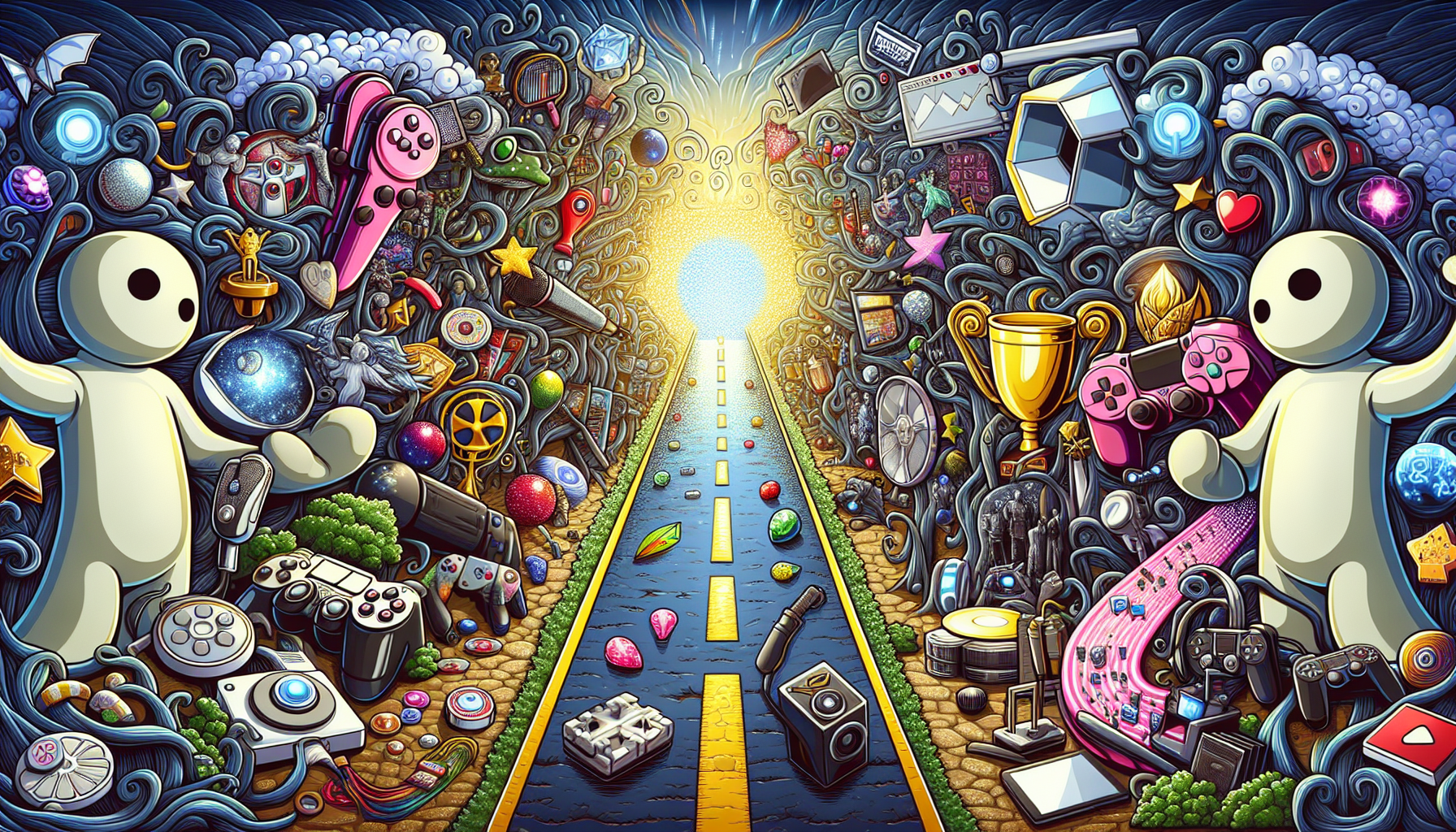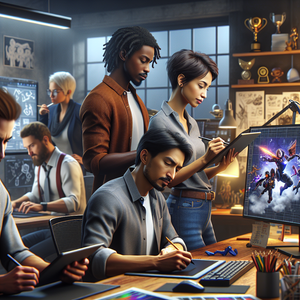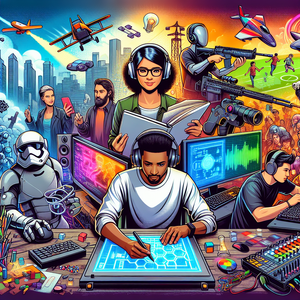From Gamers to Game Makers: How to Transition into a Career at Activision

Before embarking on the journey to becoming a game developer, it's crucial to understand the diverse landscape of the gaming industry. Game development is not a monolithic field; it encompasses a variety of roles, including game design, programming, art direction, sound design, marketing, and community management, among others. A successful game is the result of collaborative efforts from multidisciplinary teams, where each member contributes their unique expertise to deliver an engaging gaming experience. Activision, known for iconic franchises such as Call of Duty and World of Warcraft, actively seeks diverse talent to foster innovation and creativity. This demand for varied skill sets means that aspiring developers should explore the many avenues available within the industry.
Essential Skills for Aspiring Game Developers
1. **Technical Proficiency**: For those targeting roles in game design, programming, or 3D modeling, technical skills are paramount. Familiarity with programming languages such as C++ and C#, as well as proficiency in game development platforms like Unity or Unreal Engine, can significantly enhance a candidate’s prospects. Online courses, tutorials, and coding boot camps are excellent resources for acquiring these skills. 2. **Creative Thinking and Problem-Solving**: The heart of game development lies in creativity. Employers at Activision value candidates who can think outside the box and approach challenges with innovative solutions. Engaging in game jams or hackathons is an effective way to cultivate these skills in a dynamic and practical environment. 3. **Teamwork and Communication**: Given the collaborative nature of game development, strong interpersonal skills are essential. Aspiring developers should seek opportunities to work in teams, whether through school projects, community initiatives, or online collaborations. The ability to articulate ideas clearly and provide constructive feedback will distinguish candidates in the hiring process. 4. **Passion for Gaming**: A genuine love for video games is often the driving force behind successful game developers. This passion not only fuels creativity but also aligns candidates with the mission and culture of companies like Activision. Demonstrating an in-depth understanding of gaming trends, genres, and mechanics will resonate well with hiring managers.
Educational Paths and Experience
While formal education is not always a prerequisite, obtaining a degree in game design, computer science, or a related field can provide a solid foundation. Many universities offer specialized programs focusing on game development, combining theoretical knowledge with practical experience. Internships and entry-level positions are invaluable for gaining real-world experience. Numerous successful employees at Activision began their careers as interns, allowing them to learn from experienced professionals while showcasing their skills. Additionally, networking within the industry, attending gaming conventions, and participating in online forums can help aspiring developers forge connections that lead to job opportunities.
Tips for Standing Out in the Application Process
1. **Build a Portfolio**: A compelling portfolio showcasing personal projects, game designs, or contributions to community games serves as tangible proof of a candidate’s skills and creativity. Including detailed descriptions of each project can help potential employers understand the thought process and problem-solving capabilities behind the work. 2. **Tailor Your Resume and Cover Letter**: When applying to Activision, candidates should customize their application materials to highlight relevant experiences and skills that align with the specific role. Demonstrating a passion for gaming and the company itself can showcase commitment and genuine interest. 3. **Prepare for Interviews**: Candidates should be ready to discuss their favorite games, the gaming industry, and their own work during interviews. Practicing common interview questions and participating in mock interviews can help build confidence and improve performance. 4. **Leverage Online Presence**: Maintaining an active online presence through platforms like LinkedIn, GitHub, or personal blogs can help candidates showcase their expertise and connect with industry professionals. Engaging with the gaming community online also demonstrates a commitment to the field.
Transitioning from a gamer to a game maker at Activision is an achievable goal for those willing to invest time and effort into honing their skills, pursuing relevant education, and engaging with the gaming community. By understanding the landscape of game development, developing essential skills, and actively seeking opportunities to gain experience, aspiring developers can position themselves as valuable candidates in a highly competitive industry. With passion and perseverance, the dream of creating the next big hit in gaming could soon become a reality. Whether it's designing characters, coding mechanics, or crafting immersive worlds, the opportunities at Activision are limitless for those ready to take the leap. The journey from gamer to game maker is not just about creating games; it's about shaping the future of an industry that continues to captivate millions around the globe.
Game Designer
Activision, Electronic Arts, Ubisoft
Core Responsibilities
Conceptualize and design gameplay mechanics, storylines, and character attributes that enhance player engagement.
Collaborate with artists and programmers to ensure design feasibility and alignment with technical capabilities.
Create and iterate on prototypes to test and refine game features.
Required Skills
Proficiency in design software (e.g., Adobe Creative Suite) and game engines (e.g., Unity, Unreal Engine).
Strong narrative and storytelling abilities, coupled with a deep understanding of player psychology and game dynamics.
3D Game Artist
Activision, Riot Games, Bethesda
Core Responsibilities
Develop 3D models, animations, and textures for characters, environments, and props within the game.
Work closely with the art director to ensure visual consistency and quality across all assets.
Optimize 3D assets for performance while maintaining high visual fidelity.
Required Skills
Expertise in 3D modeling software (e.g., Maya, Blender) and texturing tools (e.g., Substance Painter).
Strong understanding of lighting, color theory, and composition in game art.
Gameplay Programmer
Activision, Blizzard Entertainment, Insomniac Games
Core Responsibilities
Implement gameplay features, mechanics, and systems based on design specifications.
Debug and optimize game code to enhance performance and player experience.
Collaborate with designers and artists to integrate assets and ensure smooth gameplay.
Required Skills
Strong proficiency in programming languages such as C++ or C#.
Familiarity with game development frameworks and version control systems (e.g., Git).
Sound Designer
Activision, Naughty Dog, Gearbox Software
Core Responsibilities
Create and implement sound effects, voiceovers, and music that enhance the gaming experience.
Collaborate with game designers and developers to synchronize audio with gameplay mechanics.
Conduct audio testing to ensure sound quality and consistency across platforms.
Required Skills
Proficiency in digital audio workstations (e.g., Pro Tools, Ableton Live) and sound libraries.
Strong understanding of audio design principles and experience in creating immersive soundscapes.
Community Manager
Activision, Epic Games, Square Enix
Core Responsibilities
Engage with the gaming community through social media, forums, and events to foster a positive player experience.
Collect feedback and insights from players to inform game development and marketing strategies.
Organize community events, contests, and initiatives to promote player engagement and brand loyalty.
Required Skills
Excellent communication and interpersonal skills, with a strong understanding of online community dynamics.
Experience with content creation and social media management tools.


